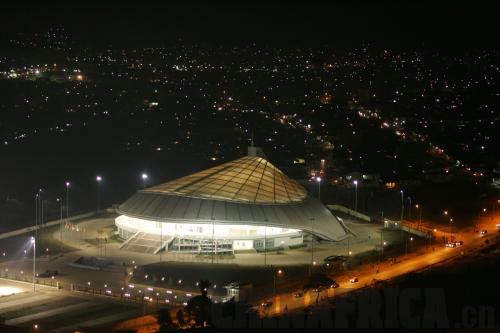|
 |
|
Yaounde Stadium (XINHUA) |
It is Saturday afternoon and a motorcade snakes its way along the Chinese-built Thika Super Highway to Moi International Sports Center, Kasarani in Nairobi, Kenya.
But the 100-plus guests and family are not headed to the stadium to watch sports. They are on their way to celebrate the wedding of Brian Jones and Annet Wanjiru.
A typical wedding here would accommodate about 200 guests at a high end hotel, but the stadium can accommodate more than 60,000 people and has a football atmosphere.
"That is why we agreed to have our wedding here. My husband loves football and he came up with this proposal. It is not bad," said Wanjiru.
Built in 1987 with Chinese aid to host the Fourth All-Africa Games, the stadium, like many dotting the African continent, has diversified its usage to avoid running into decay.
African countries are now finding unique ways of utilizing these giant facilities to make them economically viable. Weddings, concerts, site tours, political rallies and state functions are some of the current uses. In Nigeria, stadiums are regularly used for religious events which attract huge crowds and require a large capacity arena.
The lack of accommodation facilities and high rentals at stadiums has scared national sports federations away from holding their training camps or major tournaments at many state-of-the-art Chinese built stadiums.
The Stade Municipale, a multi-use stadium in Porto-Novo, Benin, mainly used for football, was renovated by the Chinese and used to stage the Africa Athletics Championships in June 2012. The event brought scores of African athletes to the city and brought much needed business to local merchants. It is clear that stadiums need to be multi-purpose and flexible to survive.
Kenya's Sports Stadiums Management Board (SSMB) Chief Executive Officer Gabriel Komora said they have to be dynamic to remain in business.
He said there are numerous events taking place, including swim meets, concerts and tourists using the stadium's three star hotel.
"We have staff to pay expenses to offset and to maintain these stadiums. All that needs money and that is why we have gone public to allow private individuals to stage their functions here to generate income. A wedding would fetch $2,000, political function $5,000, accommodation at $1,000 and a major concert up to $10,000. We share gate collections with respective federations alongside them paying a nominal fee," said Komora.
Maintenance struggles
Most stadiums across Africa are facing this survival trend. Seen as white elephants, they are struggling amid global economic hardships to remain afloat.
One viable aspect of stadiums built to stage big sporting competitions is the attached Athletes Village. These villages are built to house thousands of people for big sporting events like the Africa Cup of Nations (ACN), All-Africa Games, or the World Cup. In most cases, the village is in the form of apartment complexes, which are sold to the public after fulfilling its initial mandate.
However stadiums cannot be sold off and continue to be a drain on city revenues for maintenance. In South Africa, the ultra-modern stadiums built to host the 2010 World Cup will be used to host the 2013 ACN, but according to South African newspaper, the Mail&Guardian, the operation and maintenance costs for Cape Town Stadium alone is $5.7 million annually. It is only one of the 10 World Cup stadiums built and there are just not enough regular crowd-pulling events on the calendar to make them viable, meaning the taxpayer is ultimately burdened with the bill.
|